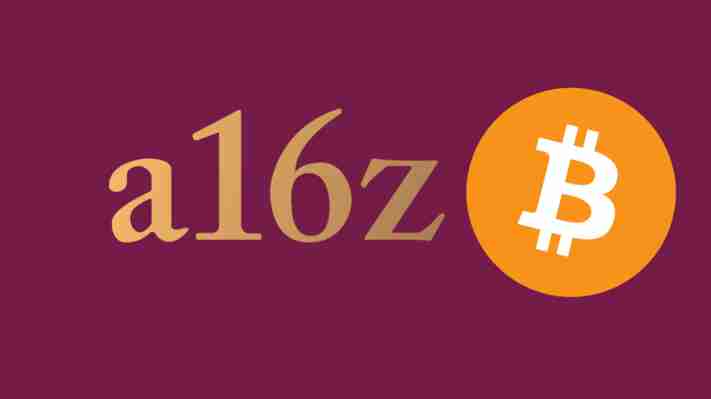Believe it or not, the thousand-dollar, crypto-centric smartphone from Sirin Labs is actually here. It officially launched today at an exclusive event in Barcelona.

Blockchain fans are now able to place the first orders for the FINNEY, a fully-featured smartphone that comes complete with an embedded hardware wallet for storing cryptocurrency, priced at $999.
Sirin Labs also intends on affording users the power to convert cryptocurrency stored in the integrated ‘ cold wallet ‘ with other digital assets on the fly, without having to interact with any exchanges.
Unfortunately, Bitcoin, Ethereum, and SRN – the firm’s native token – are the only cryptocurrencies currently supported by the internal exchange service. Although, Sirin Labs did promise to add support for more currencies moving forward.
Conversion rates between cryptocurrencies will be discovered automatically by the phone through special ‘liquidity partners.’ A proprietary algorithm is said to determine appropriate network fees by first checking congestion of the underlying blockchains .
Both functions are managed by a new operating system, SIRIN OS, which the firm advertises as an “ultra-secure, Google-certified fork of Android.”
Below are all the juicy specs – it has 6GB of RAM and 128GB storage. Hard Fork is set to receive a FINNEY for testing – so keep an eye out for an extensive review once we get one.
The company also revealed it is opening two flagship concept stores soon. The first one will be in London, scheduled to open next month, and a shop in Tokyo is said to be up-and-running in January 2019.
Sirin Labs mentioned the London store will be used as a “blockchain academy” for the cryptocurrency community, but at first glance it seems like an elaborate ‘scheme’ to get people who have no idea about blockchain to try out the FINNEY, more than a real academy.
Now, here’s the ultimate catch – you can certainly order the FINNEY now, but you’ll only be able to pay for it in Sirin Labs’ own cryptocurrency.
The firm has promised “additional channels of payments” soon, including credit card, but hasn’t given a specific timeframe, except for the FINNEY being available through Amazon Launchpad from January onwards.
Oh, and I would be guilty of grave disservice if I didn’t share arguably the best part of the whole affair – this ‘inspirational’ FINNEY advertisement featuring none other football megastar Leo Messi, who currently serves as a Sirin Labs brand ambassador.
Unfortunately, Sirin Labs’ momentous occasion has been spoiled by recent news of its co-founder and co-CEO, Moshe Hogeg, standing accused of misappropriating investor funds raised via two initial coin offerings. The Times of Israel reports Hogeg is countersuing, officially denying the claims.
Andreessen Horowitz announces $300M cryptocurrency fund led by Mt. Gox and Silk Road Prosecutor
It seems that the American venture capital (VC) firm Andreessen Horowitz —known for its successful Silicon Valley investments — is ready to foray deeper into the cryptocurrency space.

The firm announced a $300 million cryptocurrency fund in a blog post on Monday.
The fund named “a16zcrypto” will be co-led by general partners Chris Dixon and Katie Haun.
Andreessen Horowitz is interested in holding long-term investments in cryptocurrencies, Dixon suggests. The firm hasn’t sold any of its cryptocurrency holdings so far, and doesn’t plan to — in the near future — either.
The VC firm believes that the value of cryptocurrencies is driven by the “underlying, practical use cases”, and it will focus on investing in “non-speculative” use-cases. Even seemingly long-term drops in the market will not deter its investments.
“We have an ‘all weather’ fund,” Dixon says in the post. “We plan to invest consistently over time, regardless of market conditions. If there is another ‘crypto winter,’ we’ll keep investing aggressively.”
Haun’s involvement is also drawing attention from the cryptocurrency community given her past involvement in the industry. A former prosecutor with the US Department of Justice, she played vital roles in perhaps the two most infamous cases in the cryptocurrency history — Mt. Gox exchange desk hack and Silk Road . Haun also sits on the boards of Coinbase and HackerOne.
Andreessen Horowitz is well-known for its early-stage investments in Silicon Valley startups like Facebook, Twitter, Groupon, Udacity, Zynga, Stack Exchange, and Airbnb.
The VC firm has also been investing in cryptocurrency businesses since at least five years. The firm first invested in popular US exchange desk Coinbase in 2013.
Andreessen Horowitz invested in several cryptocurrency ventures following Coinbase including TrustToken, Basis, Polychain Capital, TradeBlock, and OpenBazaar. But its second major investment didn’t come until 2018 — when it led a $12 million investment round in blockchain-based game Cryptokitties.
Cryptocurrency startups initially eluded venture capitals by crowdfunding through initial coin offerings (ICOs) .
VCs used to avoid investing in cryptocurrency businesses due to uncertainty in regulations . But as the regulatory mist clears in countries like the US, even they have been taking active interest. Other than Andressen, IDG Capital, Union Square Ventures, AME Cloud Ventures, Lightspeed Venture Partners, Accel Partners, and Sequoia Capital have been heavily investing in the space.
As a lot of cryptocurrency businesses are maturing, their role in funding upcoming ventures has also increased. Coinbase — one of Andreessen Horowitz’s own early investments, for example — announced its own venture fund in April. The world’s largest cryptocurrency exchange desk Binance also announced a $1 billion venture fund earlier this month.
Facebook defends Libra comparing it to some of the ‘most meaningful innovations’ of our time — lol
David Marcus, Facebook’s Libra lead, has defended the technology giant’s ‘cryptocurrency’ project saying “the most meaningful innovations that have changed the lives of millions across the world in a profound way have always been met with damning headlines.”

Marcus was speaking at Money 20/20 , an industry conference held in Las Vegas, in a bid to provide some insight into how Libra seeks to improve traditional payment rails by offering a novel, and secure way, of moving money.
To make his point, Marcus resorted to examples including the internet, electricity, mobile phones, and smartphones noting that like them, Libra also has the potential to “change the direction of the world.”
“These headlines are a preamble to more hard times ahead and we must govern the network into a place where it will meet regulatory standards, then we will see the network come to life. People deserve much better than they have,” Marcus said.
“It is all about the people and we believe that there is still no network that is truly global and opens doors to people all over the world,” he added.
“With Libra, there is no money creation; we have a full one to one back reserve, there is no money creation whatsoever,” Marcus highlighted, adding, “We also designed Libra in such a way so that any wallet can participate as long as KYC and AML requirements are met. It was designed to be competitive, but we still need to earn people’s trust over time to use Calibra.”
He also reiterated that there was a “data separation between Facebook and Libra” and clarified that data would not be used for ad targeting but would bring distribution channels. “Moving money around the world with WhatsApp and Messenger is what will bring real value on a day to day basis.”
Yeah, but why blockchain?
When asked why the project was leveraging blockchain technology, Marcus said “If you want to change the way that money moves around, there is no better way.”
Marcus also said that although Libra is intended for international payments, there was also potential for domestic payments.
“AML is something we need to address, and I want to say that the efficacy of sanction enforcing can be much higher on Libra than other payments networks. Digital to digital is more traceable than when cash in involved and will be more secure as it will run on real-time systems,” he noted, concluding, “The open ledger — the blockchain — enables regulators to look at what is happening themselves and identify where the risk is without relying on reports. The onus is on us to do that work and now that we have the governance structure in place, we can now demonstrate this improvement.”
His comments come amid heightened regulatory scrutiny, which caused several backers, including Mastercard and Paypal, to walk away from the project.
In his testimony before Congress last week, Facebook CEO Mark Zuckerberg said he would be prepared to delay Libra‘s launch — originally planned for 2020 — until regulatory concerns were addressed.
But, while Facebook‘s regulatory battle is only just getting started, China is making great strides as it readies to launch its own digital currency.
It’s impossible to say if and when Libra will launch, but we’re certainly in for a wild ride.











